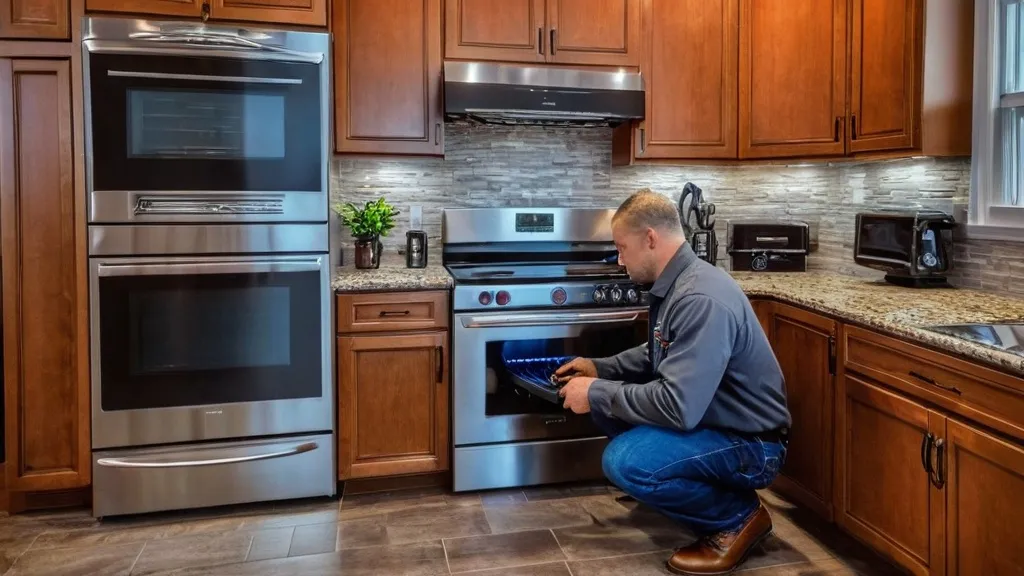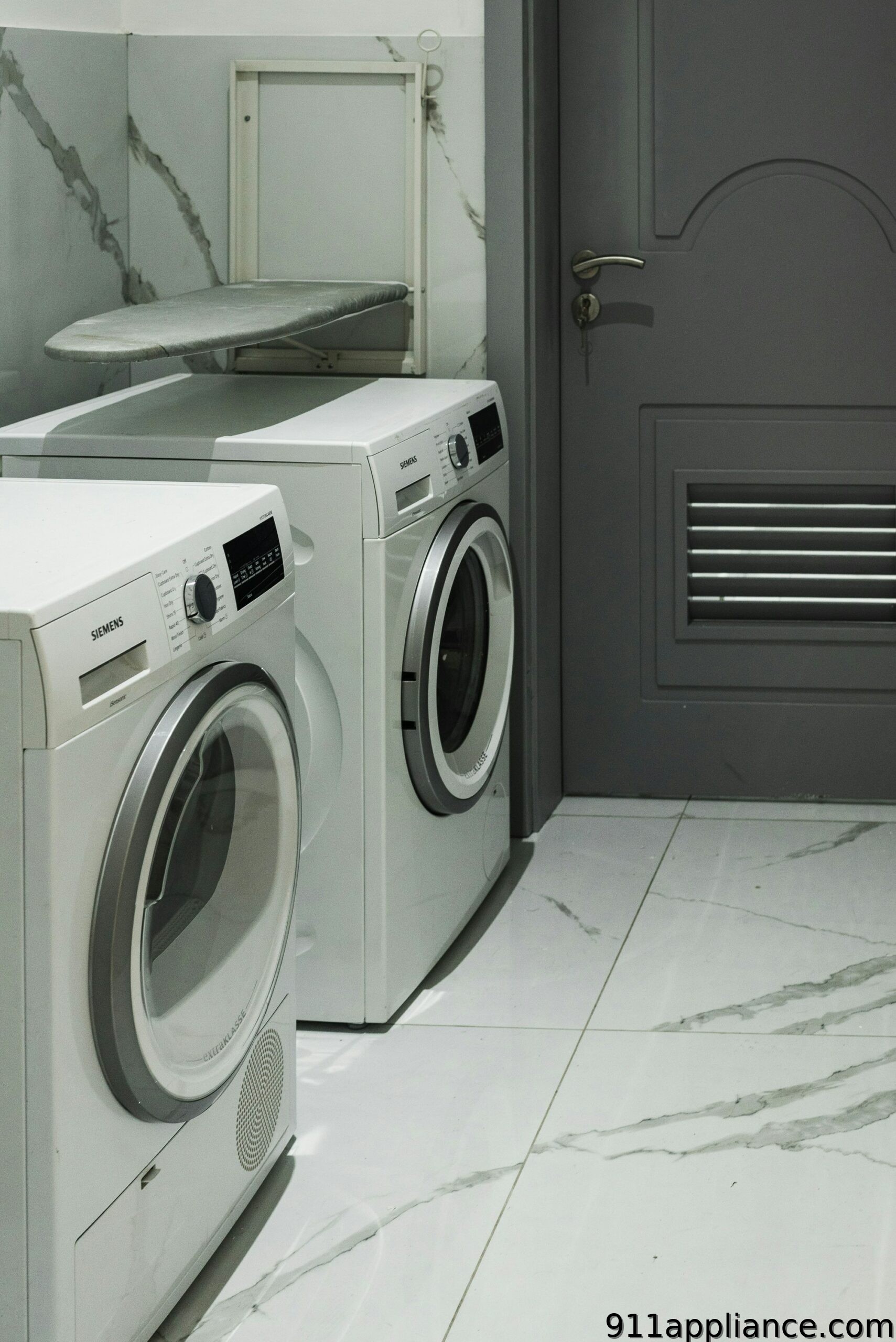Advanced DIY appliance repairs involve tackling more complex issues with household appliances, such as refrigerators, washing machines, dishwashers, and ovens. While basic repairs may involve simple tasks like replacing a broken knob or unclogging a drain, advanced repairs require a deeper understanding of the inner workings of these appliances. Knowing how to repair appliances can save you time and money, as well as give you a sense of satisfaction in being able to fix things on your own.
Table of Contents
- Key Takeaways
- Understanding the Basics of Appliance Repair
- Essential Tools and Equipment for Advanced DIY Appliance Repairs
- Troubleshooting Common Appliance Issues
- Repairing Faulty Electrical Components in Appliances
- Replacing Faulty Motors and Compressors in Appliances
- Cleaning and Maintaining Appliances for Optimal Performance
- Safety Tips for Advanced DIY Appliance Repairs
- When to Call a Professional for Appliance Repairs
- How Can I Use Advanced DIY Appliance Repairs in My Home?
- FAQs
- What is advanced DIY appliance repair?
- What are some examples of appliances that may require advanced DIY repairs?
- What are the benefits of advanced DIY appliance repairs?
- What are the risks of advanced DIY appliance repairs?
- What should I consider before attempting advanced DIY appliance repairs?
Key Takeaways
- Advanced DIY appliance repairs can save you money and give you a sense of accomplishment.
- Understanding the basics of appliance repair is crucial before attempting advanced repairs.
- Essential tools and equipment for advanced DIY appliance repairs include multimeters, soldering irons, and refrigerant gauges.
- Troubleshooting common appliance issues involves checking for faulty components and testing electrical circuits.
- Safety tips for advanced DIY appliance repairs include wearing protective gear and turning off power sources before starting repairs.
The Benefits of Graduating to Advanced DIY Appliance Repairs
One of the main benefits of advanced DIY appliance repairs is the cost savings. Hiring a professional repair technician can be expensive, especially if you have multiple appliances that need fixing. By learning how to repair appliances yourself, you can save a significant amount of money on labor costs. Additionally, you can avoid the inconvenience of having to wait for a technician to come and fix your appliance, as you can take care of the repairs yourself.
Another benefit is the convenience that comes with being able to fix your own appliances. When an appliance breaks down, it can disrupt your daily routine and cause inconvenience. By knowing how to repair appliances, you can quickly address any issues that arise and get your appliance back up and running in no time. This can save you from having to go without an essential appliance for an extended period or having to find alternative solutions while waiting for a technician.
Lastly, there is a sense of satisfaction that comes with being able to fix things on your own. Being self-reliant and having the skills to repair appliances can give you a sense of accomplishment and empowerment. It allows you to take control of your own home maintenance and repairs, which can be empowering and fulfilling.
Understanding the Basics of Appliance Repair
To tackle advanced DIY appliance repairs, it is essential to have a basic understanding of how appliances work and what common issues may arise. Appliances are made up of various components, including electrical circuits, motors, compressors, heating elements, and control panels. Understanding how these components work together and what their functions are can help you diagnose and fix problems.
Common issues that may arise with appliances include leaks, strange noises, failure to start or turn on, uneven cooking or cooling, and error codes. By familiarizing yourself with these common issues, you can quickly identify the problem and take the necessary steps to fix it.
Diagnosing problems involves a systematic approach of checking different components and conducting tests. This may involve using a multimeter to check for continuity in electrical circuits, inspecting hoses and connections for leaks, or observing the appliance’s behavior to identify patterns or abnormalities. By following a logical troubleshooting process, you can narrow down the root cause of the problem and determine the appropriate repair solution.
Essential Tools and Equipment for Advanced DIY Appliance Repairs
To successfully tackle advanced DIY appliance repairs, it is important to have the right tools and equipment. Some essential tools for appliance repairs include a multimeter for testing electrical circuits, screwdrivers of various sizes, pliers, wire strippers, a socket set, and a voltage tester. These tools will allow you to disassemble appliances, test components, and make necessary repairs.
In addition to tools, having the right equipment is also crucial. This may include replacement parts specific to your appliance model, such as motors, compressors, heating elements, or control boards. It is important to have access to reliable suppliers or manufacturers that can provide you with the necessary parts for your repairs.
Troubleshooting Common Appliance Issues
When troubleshooting common appliance issues, it is important to follow a systematic approach. Start by identifying the specific problem or symptom that the appliance is experiencing. Then, conduct a visual inspection of the appliance to look for any obvious signs of damage or malfunction.
Next, check the power supply to ensure that the appliance is receiving electricity. This may involve checking the circuit breaker or fuse box to see if a tripped breaker or blown fuse is the cause of the problem. If the power supply is not the issue, move on to testing specific components or conducting further inspections to identify the root cause.
Tips for identifying the root cause of the problem include looking for error codes or error messages displayed on the appliance’s control panel, listening for unusual noises or vibrations, and observing any patterns or behaviors that may provide clues. By systematically checking different components and conducting tests, you can narrow down the problem and determine the appropriate repair solution.
Repairing Faulty Electrical Components in Appliances
When it comes to repairing faulty electrical components in appliances, safety should be a top priority. Before attempting any repairs, always make sure to unplug the appliance from the power source to avoid electric shock. Additionally, it is important to wear protective gear, such as gloves and safety glasses, to protect yourself from any potential hazards.
Common electrical issues in appliances include faulty switches, damaged wiring, or malfunctioning control boards. To repair these components, start by removing any covers or panels necessary to access the electrical components. Use a multimeter to test for continuity in electrical circuits and identify any faulty connections or components.
If a component needs to be replaced, make sure to have a replacement part that matches the specifications of your appliance. Follow manufacturer instructions or consult online resources for step-by-step guides on how to safely replace the faulty component. Take your time and double-check your work to ensure that everything is properly connected and secured before reassembling the appliance.
Replacing Faulty Motors and Compressors in Appliances
Motors and compressors are critical components in many appliances, such as refrigerators and air conditioners. When these components fail, it may be necessary to replace them to restore proper functionality to the appliance.
To identify faulty motors and compressors, listen for unusual noises or vibrations coming from the appliance. Additionally, check for signs of overheating or burning smells, as these may indicate a problem with the motor or compressor. If you suspect that the motor or compressor is faulty, it is best to consult the appliance’s manual or contact the manufacturer for guidance on how to properly replace these components.
Replacing motors and compressors can be more complex than other repairs, as it may involve disconnecting refrigerant lines or dealing with high-voltage electrical connections. It is important to follow manufacturer instructions or consult a professional if you are unsure about how to safely replace these components. Improper installation can lead to further damage or safety hazards.
Cleaning and Maintaining Appliances for Optimal Performance
Regular cleaning and maintenance are essential for keeping appliances in optimal condition and preventing issues from arising. Each appliance has specific cleaning and maintenance requirements, so it is important to consult the appliance’s manual for guidance.
Some general tips for cleaning and maintaining appliances include regularly cleaning filters, vents, and coils to prevent dust and debris buildup. This can help improve energy efficiency and prevent overheating. Additionally, regularly inspecting hoses, seals, and connections for leaks or wear can help prevent water damage or other issues.
For appliances with moving parts, such as washing machines or dishwashers, it is important to periodically lubricate any necessary components to ensure smooth operation. This can help prevent excessive wear and tear on parts and extend the lifespan of the appliance.
Safety Tips for Advanced DIY Appliance Repairs
Safety should always be a top priority when working with appliances, especially when tackling advanced DIY repairs. Here are some important safety tips to keep in mind:
1. Always unplug the appliance before attempting any repairs.
2. Wear protective gear, such as gloves and safety glasses, to protect yourself from potential hazards.
3. Use caution when working with electrical components to avoid electric shock.
4. Follow manufacturer instructions and guidelines for proper repair procedures.
5. If you are unsure about how to safely repair a specific component or appliance, consult a professional.
When to Call a Professional for Appliance Repairs
While advanced DIY appliance repairs can save you time and money, there are certain situations where it is best to call a professional. These include:
1. When dealing with complex electrical repairs that require specialized knowledge or equipment.
2. If the appliance is still under warranty, as attempting repairs yourself may void the warranty.
3. If the repair involves working with gas lines or refrigerant, as these can be dangerous if not handled properly.
4. If you are unsure about how to safely repair a specific component or appliance.
It is important to know your limits and recognize when a repair is beyond your skill level. Calling a professional in these situations can ensure that the repair is done correctly and safely.
Advanced DIY appliance repairs offer numerous benefits, including cost savings, convenience, and the satisfaction of fixing things on your own. By understanding the basics of appliance repair, having the necessary tools and equipment, and following a systematic troubleshooting process, you can tackle more complex repairs with confidence. However, it is important to prioritize safety and know when to call a professional for assistance. With the right knowledge and skills, you can become proficient in advanced DIY appliance repairs and enjoy the rewards of self-reliance and cost savings.
How Can I Use Advanced DIY Appliance Repairs in My Home?
When facing appliance issues at home, using DIY appliance repair techniques can save time and money. With advanced know-how, you can tackle complex repairs such as fixing a faulty compressor in a refrigerator or replacing a faulty heating element in a dryer. Learning these techniques can empower homeowners to handle appliance malfunctions effectively.
FAQs
What is advanced DIY appliance repair?
Advanced DIY appliance repair refers to repairing appliances that require more technical knowledge and skills than basic repairs. These repairs may involve working with electrical components, complex mechanical systems, or specialized tools.
What are some examples of appliances that may require advanced DIY repairs?
Examples of appliances that may require advanced DIY repairs include refrigerators, washing machines, dryers, ovens, and dishwashers. These appliances have complex systems that may require specialized knowledge and tools to repair. For those willing to take on these challenges, researching appliance repair tips for homeowners can be invaluable. Many resources, including online tutorials and forums, provide guidance on common issues and repairs. By equipping themselves with the right information, homeowners can save money and extend the life of their appliances.
What are the benefits of advanced DIY appliance repairs?
The benefits of advanced DIY appliance repairs include saving money on repair costs, gaining a sense of accomplishment, and learning new skills. Additionally, repairing appliances can help extend their lifespan and reduce waste.
What are the risks of advanced DIY appliance repairs?
The risks of advanced DIY appliance repairs include electrical shock, injury from moving parts, and damage to the appliance. Additionally, attempting repairs without the proper knowledge or tools can lead to further damage or even create a safety hazard.
What should I consider before attempting advanced DIY appliance repairs?
Before attempting advanced DIY appliance repairs, you should consider your level of knowledge and experience, the complexity of the repair, and the availability of tools and replacement parts. It may be helpful to consult online resources or seek advice from a professional before attempting repairs. Additionally, gaining hands-on experience through smaller repairs can build your confidence and skill set. If you find yourself drawn to the intricacies of appliance mechanics, consider becoming an appliance repair technician, as it can offer a fulfilling career path. Ultimately, whether you choose DIY repairs or professional help, understanding the fundamentals of appliance maintenance is beneficial.



